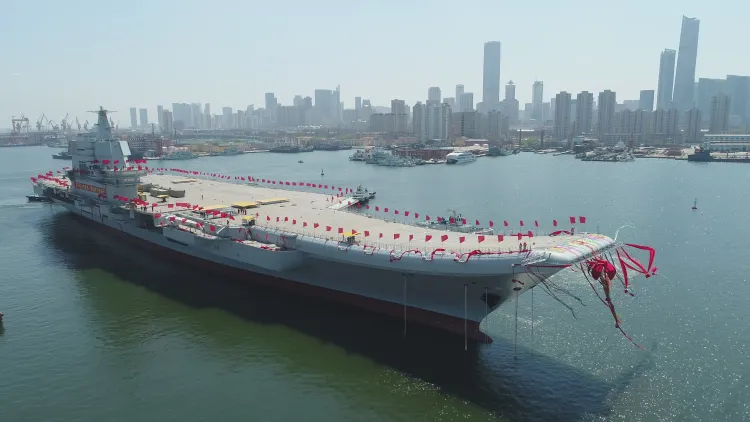Why is China Opposing US Restrictions on Maritime and Shipbuilding Industries?

Synopsis
Key Takeaways
- China firmly opposes US restrictions on its maritime and shipbuilding sectors.
- US measures are criticized for being unilateral and protectionist.
- China has imposed special port fees on US-related vessels.
- The US restrictions could lead to increased trade costs and inflation.
- China is open to dialogue despite ongoing tensions.
Beijing, Oct 14 (NationPress) China has voiced its profound discontent and firm opposition to the restrictions enacted by the United States, which stem from the so-called findings of the Section 301 investigation into China's maritime, logistics, and shipbuilding industries, as stated by the country's Ministry of Commerce on Tuesday.
A spokesperson from the ministry, addressing a media inquiry, indicated that US actions exemplify typical unilateralism and protectionism, significantly contravening World Trade Organization regulations, undermining the principles of equality and mutual benefit established in the China-US maritime transport agreement, and causing substantial harm to China's relevant sectors.
On October 10, China declared that it would implement special port fees for vessels that are US-flagged, US-built, or owned, partially owned, or operated by US enterprises, organizations, or individuals, according to the ministry.
The US measures not only threaten to disrupt global supply chains and considerably elevate international trade costs but also risk increasing domestic inflation in the United States, weakening the competitiveness and employment opportunities at US ports, and endangering the security and resilience of its supply chains, the spokesperson elaborated.
There is substantial opposition from US industry representatives, clearly illustrating that the US strategy inflicts harm on others without yielding any benefits for itself, the spokesperson noted.
The spokesperson also mentioned that, in alignment with relevant domestic laws and regulations, China has placed certain entities that assisted or supported US investigative efforts on its countermeasures list and has initiated inquiries into US actions and those of other entities that jeopardize the security and developmental interests of China's shipping, shipbuilding, and related industries.
Throughout the investigation, China will conduct law enforcement and inquiries in accordance with the principles of openness, fairness, and justice, ensuring comprehensive protection of the rights of all parties involved, as affirmed by the spokesperson.
China's stance is clear and consistent, the spokesperson emphasized. "We will fight if we must. Our doors remain open, should the US wish to engage in dialogue."
China urges the United States to rectify its missteps, meet China halfway, and resolve mutual concerns through dialogue and equitable consultation, the spokesperson added.









